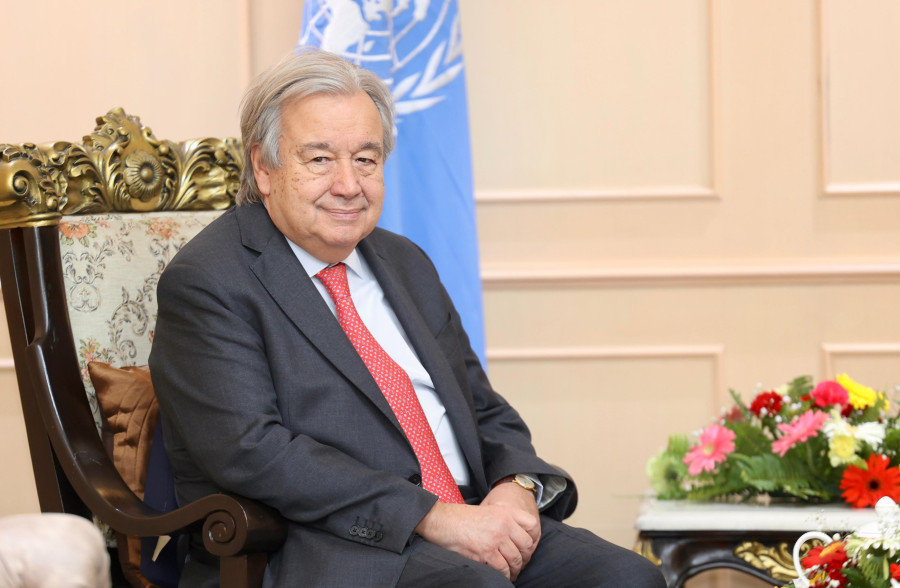Editorial
Heed the chief
The UN head made a vital call to consider global practices, Nepali justice system and victims’ voices.
UN Secretary General António Guterres is in town, and the wounds of the insurgency era have been opened again. On Sunday, following his meetings with top political leaders, sitting and former prime ministers and the incumbent Speaker, Guterres was unequivocal in his call for concluding Nepal’s transitional justice process in a timely and judicious manner. He conveyed the willingness of the United Nations to support Nepal to develop a process that meets international standards, the Supreme Court’s rulings, and the needs of victims, emphasising that the global intergovernmental organisation would like to see the promises translated into practice. The fact that it was the main agenda of the UN chief in his meetings with top political leaders shows how Nepal’s transitional justice process is a transnational issue that needs to be resolved immediately.
Prime Minister Pushpa Kamal Dahal, following a meeting with the UN chief, reiterated his commitment to completing the process and even sought the UN’s support towards that end. This was expected. But what Dahal has done in the past decade-and-a-half is clear as day. The “forgive and forget” approach he once floated does not even come close to exposing his unwillingness to complete the process. In fact, he and his party have consistently attempted to sabotage it, for instance by trying to exclude murder from the list of heinous crimes. Hopefully, the tough message from Guterres will for him re-emphasise the need for just and timely completion of the process.
The UN chief also met Nepali Congress President Sher Bahadur Deuba, whose record on transitional justice does not fare much better than Dahal’s. While he has mostly been indifferent to the process, he has allowed his party and government to dance to the tunes of Dahal, at least on transitional justice. The misadventure by Deuba’s minister Gobinda Bandi to present a bill to amend the Enforced Disappearances Enquiry, Truth and Reconciliation Commission Act by whitewashing the crimes of the insurgency era got a forceful backlash from civil society and insurgency victims, making his erstwhile government backtrack. The bill, in a slightly revised yet still regressive form, has for months been under perennial discussion in the House subcommittee of the Law, Justice and Human Rights Committee without any breakthrough.
The views of CPN-UML Chairperson KP Sharma Oli on transitional justice have swayed in different directions over the years, depending on whether he is sharing power with Dahal or opposing him. His larger interest, though, seems to be to see Dahal and the Maoists face retributive justice rather than get away with reconciliation. Considering their ongoing war of words and the virtual impossibility of getting together to share power in the immediate future, Oli sees a tactical advantage in prolonging the justice process and putting all the blame on Dahal. With Dahal, Deuba and Oli deeply enmeshed in a self-centred cost-benefit analysis of the implications of a completed transitional justice process, the leaders may make the mistake of taking the UN chief’s words lightly. But the unfinished peace process will remain a thorn in the flesh of Nepali society even after the current set of leaders are gone, and there is no alternative to completing it. And Guterres has offered a simple yet important tip: They will ignore international practices, the local justice system and victims’ voices at their own peril.




 10.12°C Kathmandu
10.12°C Kathmandu













